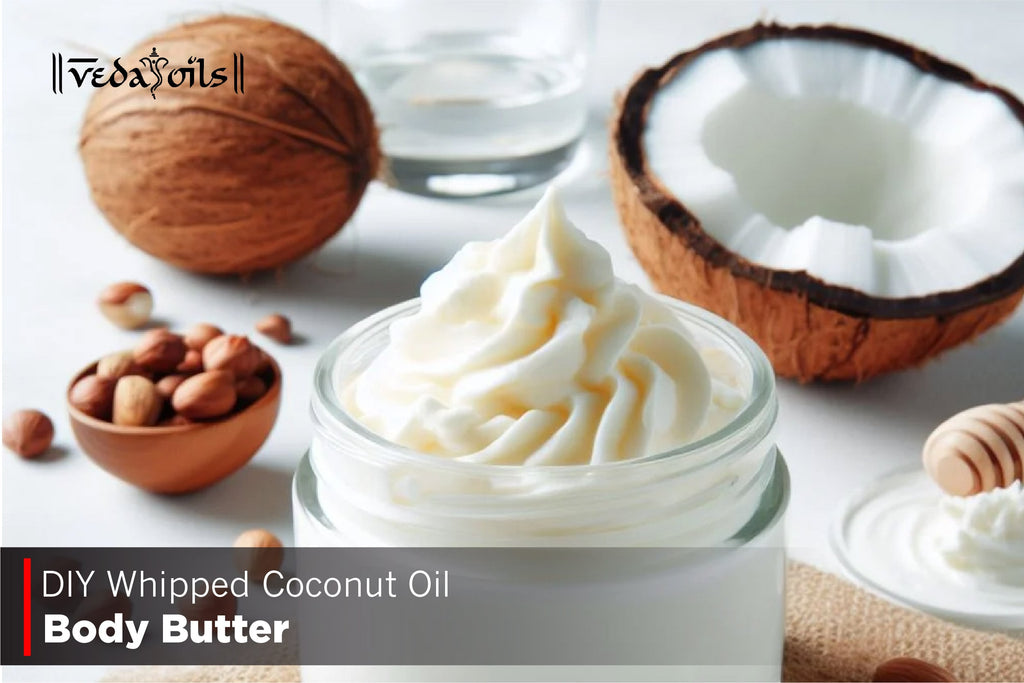Olive Oil Vs Avocado Oil For Skin & Hair Care - Which One Is Better?
When it comes to reviving parched hair and skin, oils are unmatched. Natural oils thoroughly nourish hair and skin to produce the type of benefits that outperform the fleeting effects of creams and lotions. Consider your particular hair and skin type when selecting an oil to use as a DIY treatment.

Avocado oil heals and protects, while olive oil is great for soothing dry hair and skin. To combat all of your skin and hair problems which one you should choose Olive Oil vs Avocado Oil. Read on to know more about it!
What is Olive Oil?
Olive oil is the oil extracted from a whole olive fruit. It includes antioxidants that are good for the skin as well as monounsaturated fatty acids, which are healthy fats with a number of health and aesthetic advantages.

One of those powerful plant oils is olive oil, which is acclaimed for its emollient and moisturizing qualities. This miracle oil may be found in a variety of products, such as serums and face cleansers, but it's also offered in its pure form with humectants added to make it acceptable for skin and haircare.
What is Avocado Oil?
Avocados are the source of avocado oil. Other oils typically come from the seed or nut, but avocado oil is unique in that it is made right from the fruit. The oil's anti-oxidants, fatty acids, vitamins, and minerals are reason enough to buy a bottle (or two).

Your skin gains hydration, protection, and suppleness from the carrier oil in large part thanks to the vitamins and nutrients. Don't trust us? Everything you need to know about the advantages and applications of avocado oil for skin and hair are mentioned ahead. Keep reading!
Difference Between Olive Oil And Avocado Oil
The major, fundamental difference between olive oil and avocado oil are the fruits that both are derived from. Apart from that, both the oils play an important role in DIY skin and hair care. Read on to know more about olive oil and avocado oil.
Olive Oil vs Avocado Oil for Skin
Applying avocado oil topically is an excellent way to replenish the skin's moisture balance and fortify the skin barrier to stop water loss.

Olive oil provides nourishing and moisturising qualities that moisten the body and face. That's why, olive oil is a great option for skincare since it contains plenty of vitamins A, E, K, and D.
How to Use
Take a ripe banana and mash it completely. 1-2 tablespoons of avocado oil or olive oil should be added to the mixture. Apply the paste on your face, then wait 10 to 15 minutes before rinsing. After rinsing with warm water, go on as usual with your skincare regimen.
Olive Oil vs Avocado Oil for Hair Growth
Avocado oil is high in vitamins, biotin, vital fatty acids, and antioxidants. It has been demonstrated that these nutrients improve shine while lubricating the hair and preventing hair breakage. It also prevents dandruff. Olive oil is beneficial for hair, especially if you have frizz and flyaway.

Regular, untreated strands readily absorb and lose water, which causes each hair fiber to often expand and then dry out. Breakage and split ends result from this. Olive oil may really cover the space between cuticle cells since it is a thicker oil, strengthening the cuticle in the process. When applied to the ends of the hair, this works well as a post-shampoo serum since it reduces frizz.
How to Use
An itchy scalp and dandruff can be lessened with a hot oil therapy. In a dish, combine 3-5 tablespoons of avocado oil with 1/2 cup water to liquefy. When applying the mixture to your scalp, wait until it has cooled. You have two options: leave it on all night or wash it out.
If you're using olive oil on your hair for the first time, measure out a little quantity first. Apply the oil to dry parts of the scalp or hair. Allow the oil to remain on the hair for about 15 minutes while wearing a shower cap. Warm water should be used to rinse the oil from the hair. If the olive oil makes your hair oily, shampoo your hair again.
Olive Oil vs Avocado Oil for Dry Skin
One study found that using avocado oil topically to treat persistent plaque psoriasis had advantages that persisted throughout the observation period. Avocado oil provides mild, non-irritating comfort for people with sensitive, dry, itchy skin.

Squalene, a fatty lipid that is moisturizing and stops skin's water loss, is one of the antioxidants in olive oil that combat free radicals. When applied, squalene leaves skin very plump and supple since it may resemble sebum.
How to Use
To keep your skin looking and feeling smooth, use avocado oil or olive oil alone or mix a few drops with your daily moisturizer. But if you want to make your own, just put either carrier oil in a container with additional oils like emu or tamanu.
Add some essential oils to the mix for even additional advantages, such as the ability of lavender oil to reduce hyperpigmentation, tea tree oil to unclog pores, and rosehip oil to gradually lighten acne scars. Plus, it intensifies the fragrance of the oil.
Olive Oil vs Avocado Oil for Acne
Due to its natural anti-inflammatory characteristics, beta carotene (abundant in avocado oil) can relieve redness and irritation while amazingly preventing any oil accumulation. As a result, it can cleanse pores, cure acne, and smooth skin (which is usually the culprit for clogged pores and acne).

Olive oil has a tremendous amount of vitamin E, which helps to treat acne and destroys germs. It protects the skin against psoriasis and other skin conditions as well.
How to Use
Avocado oil is best utilised at night because of its glossy, greasy appearance. Use a few drops of the oil to gently massage your face after cleansing it with a gentle cleanser. Let it stay overnight.
Note that this oil is better for only moderate acne cases. Apply a small amount of oil—about 1/2 teaspoon—all over your face by pouring it onto your fingers and gently rubbing it into your skin for a few minutes. Give the oil a minute or so to absorb into your skin.
Olive Oil vs Avocado Oil for Anti-Aging Skin
Two of the main factors contributing to skin ageing are exposure to environmental pollutants and sun damage. Sun damage may be prevented by using avocado oil on the skin (from both UV and visible radiation). The quantity of its vitamins and good fats is also linked to improved skin suppleness and fewer wrinkles.

Olive oil can moisturise and soften the skin while shielding it from sun damage on hands (or feet) that feel worn out. In fact, hands typically get creases and fine lines earlier than any other region of the body, so it's crucial to maintain the skin there supple and moisturised. Olive oil also contains polyphenols and antioxidants that promote collagen production and skin cell renewal while delaying the ageing process of the skin.
How to Use
In a saucepan, combine 1 cup water, 1/4 cup avocado oil or olive oil, 2 tablespoons coconut oil, 2 tablespoons beeswax, 1/2 teaspoon vitamin E oil, and 1 tablespoon shea butter. The mixture should simmer after melting it together.
Place the mixture outside to solidify after pouring it into a jar. To minimize the appearance of fine lines and wrinkles while you sleep, apply a nickel-sized quantity to regions including the neck, forehead, and smile lines. If you are using olive oil, then apply this cream to your hands and feet.
Olive Oil vs Avocado Oil for Eczema
The antioxidants and vitamins in avocado oil can help fully hydrate the skin, lessen flakiness, and ease irritation if you have eczema or psoriasis.

Olive oil can ease discomfort if you have skin irritation or an inflammatory condition like eczema. It can also simply soothe red, irritated skin. It contains a substance called oleocanthal, which relaxes and soothes while thoroughly moisturising skin.
How to Use
Use a mixture of one tablespoon castor oil, one teaspoon avocado oil or olive oil, and a few drops of tea tree oil to cleanse your face at night. To begin, use dry hands to massage the mixture into dry skin.
As you massage your skin, you'll see that your makeup is removing and your skin is cleansing itself since oil breaks down and draws oil. Rinse off afterward with a washcloth and warm water. Your skin won't be stripped with this technique, leaving it tight. You'll see that your skin is left hydrated and irritation-free.
Olive Oil vs Avocado Oil: Which is Better?
Overall, avocado oil and olive oil can both work amazingly well. Be it hair or skin issues, these oils have the capability of doing wonders for you without causing harm unlike chemical laden store-bought skin treatments and products. You can try both the oils out to see which one fits your requirements best.

Precautions for Using Olive Oil and Avocado Oil
Although you can apply the oil straight to your skin, it's advised to perform a tiny patch test on your forearm to evaluate how the component affects your skin. It is advisable to avoid this natural product if you have an avocado allergy or to get medical advice before using it.
For skin that is dry, sensitive, or prone to acne, avocado oil may be fantastic. However, utilizing the carrier oil is generally not a good idea if you have very oily skin. The oil's thickness may cause more damage than good. You definitely don't need any more extra oil.
Conclusion
There you go! Now you know all about avocado oil vs olive oil, two magical oils. Both of these can be really amazing for your hair and skin. But it is essential to make sure that you use only the best quality of avocado oil and olive oil. If you want to know where you can get them, then look no further than VedaOils! We have the most authentic and genuine natural oils in the market.
Frequently Asked Questions
Welcome to our comprehensive FAQ section on Olive Oil Vs Avocado Oil!
Q.1 Is avocado oil better than olive oil?
Ans. Olive oil and avocado oil are both good in their own ways. Try them out to find out which one suits you more.
Q.2 Is olive oil or avocado oil better for skin?
Ans. Olive oil and avocado oil are both great for improving your skin texture and getting rid of acne.
Q.3 Is olive oil or avocado oil better for hair?
Ans. Olive oil and avocado oil both have excellent benefits for hair. If you are looking to eliminate dandruff, then avocado oil is the way to go!
Q.4 Are olive oil and avocado oil interchangeable?
Ans. In some uses, avocado oil and olive oil can be interchangeable like for some DIY skin care recipes and face masks.
You May Also Like:
Buy Products
Related Articles
Disclaimer :- This article is intended for informational and educational purposes only and should not be considered a substitute for professional medical advice. For specific health concerns or treatment, please consult your personal physician. The article's editor, writer, and VedaOils organization do not assume any responsibility for any health outcomes resulting from the information provided. Readers are strongly encouraged to seek advice from their physician before acting on any recommendations made in these articles.

















 Sign in
Sign in Register now
Register now My Reward Points
My Reward Points









